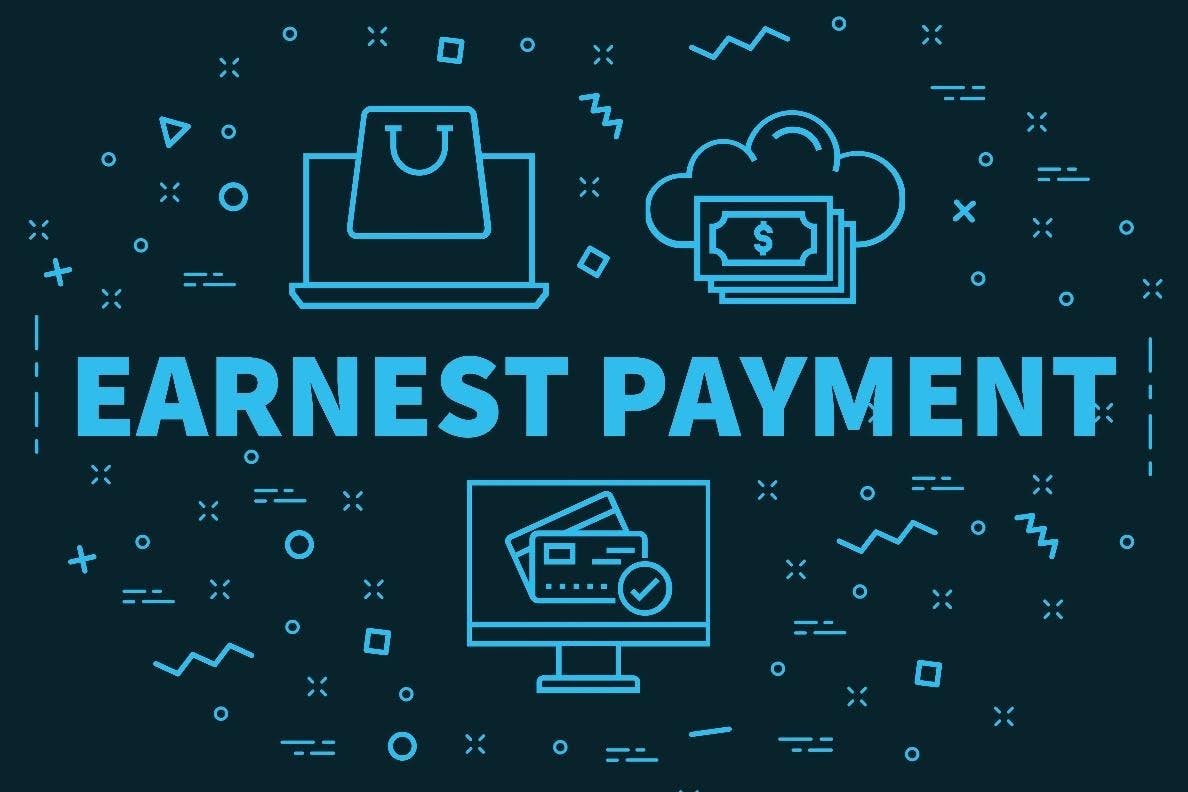Many steps in the home-buying process have adapted with recent times. Most real estate services can now be conducted virtually. Even the earnest-money deposit has joined the 21st century – at least in many parts of the U.S.
Until the virus outbreak, many buyers wrote checks as part of an offer on a home. While Americans routinely use “plastic” or phone apps to pay for products and services, many residential real estate deals still required a paper check, often accompanied with the offer. Buyers – many unaware – were told to carry their checkbook in case they wanted to have their broker write up an offer at that moment.
Fortunately, that custom has slowly been replaced by electronic earnest-money deposits – often straight from the buyer’s phone. Earnnest, for instance, is a digital platform that allows for the secure deposit of funds from buyer directly to the escrow company. The app provides a fully digital, closed network for earnest-money transactions. Other apps used locally include Zoccam and a proprietary software app created by Fidelity National Financial, which owns three title & escrow companies in our area.
The most popular form of earnest-money transfer is through wired funds, in which a bank safely transfers the approved amount to escrow. (Buyers should always be careful when wiring funds – or face some unfortunate consequences.)
There are still questions about earnest money and other financial aspects of residential real estate. Here are four heard from buyers:
How Much Should I Offer in Earnest Money?
Buyers in Seattle/King County should think about making a deposit in the amount of 1%-3% of the purchase price. The median price on a home is currently $650,000 (May 2020) and 2% of that is $13,000. If you believe you will face competition for the home, it’s better to up your game and make a larger deposit – as much as you and your financial advisor believe you can afford.
A higher earnest-money deposit could not only help buyers get the home over other offers but it may also allow them to gain more flexibility with the seller on the overall deal. That could include better terms on the closing date or asking the seller to make repairs before move-in.
What Happens to My Deposit?
Honestly, you will likely never see that money again. Don’t worry, though! The deposit would be part of the overall down payment should the seller accept your bid. (If putting a 0% down payment on a VA loan, buyers can get the deposit back at closing.)
The offer includes a commitment from the buyer to provide an amount of money as an earnest effort to buy the home. The deposit can either be a personal or cashier’s check or a promise to electronically deposit the amount to the escrow company (also known as the closing agent), typically within two business days of mutual acceptance. In reality, the check is never handed over to the seller. It stays with either the buyer’s broker or, most often, with escrow after the offer is accepted.
A courier service can transport a physical check along with the signed purchase and sale agreement from the buyer’s broker to the escrow company. Buyers receive a receipt for the initial payment from his/her agent as well as from escrow.
What’s the Difference Between Earnest Money and Down Payment?
These are two separate payments that ultimately both go toward the purchase of the home. Earnest money is the initial step while the down payment is what buyers bring to escrow to complete the purchase at closing (along with your mortgage lender’s portion of the purchase, sent separately by the financial institution).
Can I Get My Earnest Money Deposit Back?
Usually yes, unless buyers fail to follow the agreed contract that requires them to meet all conditions and timelines. And that’s a big “unless” that, hopefully, a buyer’s broker tracks each step for his/her client.
True, many issues can pop up during the final weeks between mutual acceptance and getting the keys. In many cases, an earnest-money deposit is returned after the buyer backs out over a defect or other issue raised during the home inspection. There are other times, for example, when the buyer is unable to get financing. In most of these situations, the buyers can use the specific contingency addendum in the agreement to rescind the offer and receive a full refund. (If a check was deposited, escrow will typically either wire funds to the buyers’ bank account or write a new check in return.)
It’s important to include critical contingencies in an offer that allow buyers to back out of a deal. Without the inspection contingency, for example, buyers risk losing their earnest money when they learn of a defect in the home and want out of the deal.
One small consolation for buyers: Washington state allows sellers to keep an earnest-money deposit of up to 5% of the purchase price when instructed by the agreement. If a buyers’ offer includes earnest money of 6% of the purchase price, for instance, the buyers would at least receive 1% back should they break the deal.
Buyers sometime make an offer on another home that is a better fit. Without providing legitimate cause, they can lose their initial earnest money. In other cases, buyers miss a deadline (usually to complete the home inspection and make requests for repairs) and then make unjustified demands for more time. Sellers don’t like to see a deal fall through but they equally don’t want to have their home off-market while a buyer dawdles.
Bottom line: If they follow the letter and spirit of the contract, buyers can usually get their earnest money returned should they want to back out of the deal.
For more information, check out the chapter on earnest money deposits in my Buyer’s Guide.




